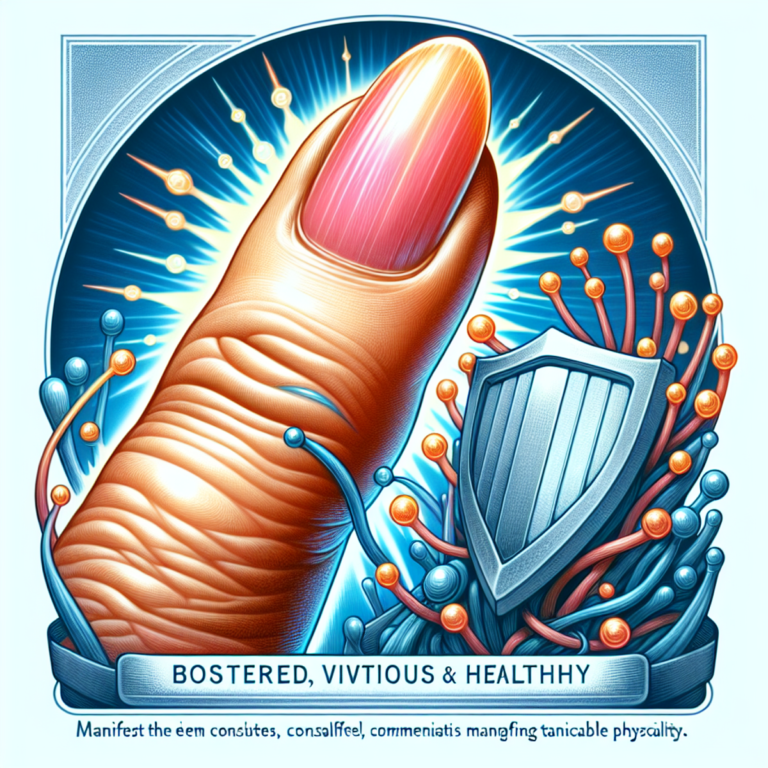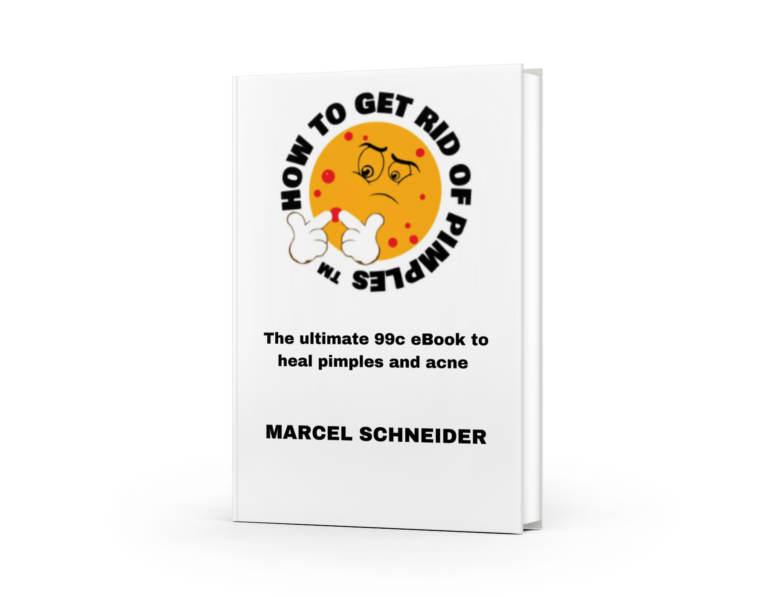How to prevent pimples: 15 tips to eliminate acne

Introduction
Acne is a common concern that affects people of all ages, impacting confidence and quality of life. The struggle to prevent pimples and eliminate acne is real for many individuals seeking clear, healthy skin. Whether you’re dealing with occasional breakouts or persistent cystic pimples, understanding how to manage and treat acne is essential.
This article compiles 15 effective tips designed to help you prevent pimples and achieve a pimple-free complexion. From establishing a skincare routine to exploring diet and lifestyle changes, these strategies are tailored to provide practical solutions for anyone wondering how to get rid of back pimples or remove pimple marks.
You’ll find insights into maintaining clear skin, including advice on choosing the right products, adopting healthy habits, and knowing when to seek professional help. Empower yourself with knowledge on how to get rid of pimple marks and how to get rid of cystic pimples fast. Dive into the world of skincare with confidence and clarity, equipped with the tools you need for success in your journey towards clearer skin.
Understanding Pimples and Acne
Understanding acne can significantly impact your approach to treatment and prevention. Different types of pimples each have their own formation process, influenced by a variety of factors.
Types of Pimples
Whiteheads
These are closed comedones that occur when pores are clogged with sebum and dead skin cells. They appear as small, flesh-colored bumps.
Blackheads
Open comedones where the clog is exposed to air, causing oxidation and turning them dark. These typically form on areas with more oil production.
Cystic Acne
The most severe form of acne; cysts are painful, pus-filled lumps beneath the skin surface. Cystic acne often results from hormonal imbalances.
Common Causes of Acne
The causes of pimples extend beyond surface-level issues:
- Hormonal Changes: Fluctuations during puberty, menstruation, or stress can increase oil production, leading to breakouts.
- Bacteria: The bacteria Propionibacterium acnes thrives in clogged pores, exacerbating inflammation and pimples.
- Diet: High glycemic index foods and dairy products may contribute to acne by affecting insulin levels and hormonal balance.
Impact of Skin Type
Your skin type plays a crucial role in how you experience acne:
- Oily Skin: More prone to blackheads and whiteheads due to excess sebum production.
- Dry Skin: May still experience acne due to dead skin cell buildup that clogs pores.
- Combination Skin: Requires a balanced approach to manage both oily and dry areas effectively.
Knowing these factors helps tailor strategies for how to get rid of breakouts or how to remove pimples naturally and permanently. Whether you’re seeking methods for how to get rid of pimples overnight or long-term solutions, understanding the root causes is key.
1. Establish a Daily Cleansing Routine
Daily cleansing is crucial for maintaining clear skin and preventing acne breakouts. A consistent routine helps remove dirt, excess oil, and impurities that can clog pores, leading to pimples and blemishes. Investing time in a proper cleansing routine can also assist in getting rid of spots and even removing pimple scars naturally.
How Often and How to Cleanse
- Twice Daily Cleansing: It’s advisable to cleanse your face twice a day—once in the morning and once before bedtime. This ensures that sweat, oil, and grime accumulated throughout the day or night are effectively eliminated.
- Gentle Massage Technique: Use your fingertips to apply the cleanser in circular motions, which enhances blood circulation without irritating the skin. Avoid vigorous scrubbing as it can worsen acne conditions.
Choosing the Right Cleanser
Selecting a suitable cleanser based on your skin type is vital:
- For Oily/Acne-Prone Skin: Opt for a mild cleanser with salicylic acid or benzoyl peroxide to reduce oiliness and target breakouts. These ingredients are effective in addressing how to shrink a cystic pimple overnight.
- For Dry/Sensitive Skin: A hydrating cleanser with ingredients like glycerin or hyaluronic acid can help retain moisture while being gentle on sensitive skin.
- For Combination Skin: Consider a balanced formula that removes excess oil without overdrying certain areas.
Addressing Common Concerns
Incorporating daily cleansing into your skincare routine contributes significantly to resolving common concerns such as how to get rid of tiny bumps on face quickly or how to get rid of zits fast. Over time, regular cleansing aids in reducing the appearance of acne scars, paving the way for clearer, healthier skin.
2. Avoid Harsh Scrubbing Techniques
Harsh scrubbing might seem like a quick fix when you’re trying to get rid of spots on your face or treat sudden face breakouts. However, it can actually do more harm than good. Scrubbing vigorously can lead to skin irritation, exacerbate acne, and worsen conditions such as pustules and blackheads. The friction from harsh scrubbing can strip away your skin’s natural oils, leaving it more vulnerable to inflammation and breakouts.
Gentle Washing Tips:
- Use Your Fingertips: When cleansing your face, gently use your fingertips instead of a washcloth or sponge. This minimizes friction and reduces the risk of irritation.
- Lukewarm Water: Opt for lukewarm water when washing your face. Hot water can strip the skin of essential oils, leading to dryness and potential irritation.
- Pat Dry: After washing, always pat your skin dry with a clean towel rather than rubbing it. This helps prevent additional irritation.
For those dealing with specific issues like bumps on arms or bumps on the butt, gentle cleansing remains key. Incorporating non-abrasive cleansers can aid in treating these conditions without exacerbating them.
Incorporate these gentle techniques into your routine to effectively address concerns such as how to get rid of pustules, how to treat blackheads, or acne without causing further damage to your skin. Emphasizing gentleness over aggression ensures that your skincare routine is both effective and nurturing. For healthier looking skin, consider following some of the skincare secrets shared by experts.
3. Moisturize Correctly with Noncomedogenic Products
Many people believe the myth that oily skin doesn’t require a moisturizer. In reality, skipping moisturizer can lead to increased oil production as your skin compensates for the lack of hydration. This can worsen acne, making it crucial to include moisturizing in your skincare routine.
Choosing the Right Noncomedogenic Moisturizer
Selecting a noncomedogenic moisturizer is essential to avoid clogged pores while maintaining skin hydration. Here are some tips:
- Identify Your Skin Type: Understanding whether you have oily, dry, combination, or sensitive skin will guide your choice of moisturizer.
- Look for Key Ingredients: For oily or acne-prone skin, consider moisturizers containing ingredients like hyaluronic acid or glycerin. These help hydrate without adding excess oil.
- Check Labels: Ensure the product is labeled as “noncomedogenic,” meaning it won’t clog pores.
- Test and Observe: Try a small amount first to see how your skin reacts. It may take some trial and error to find the perfect fit.
Additional Tips for Managing Acne-Prone Skin
While moisturizing correctly aids in maintaining clear skin, it’s also helpful to learn how to get rid of under-the-skin pimples overnight or how to treat tiny bumps on face. Incorporating spot treatments with salicylic acid or benzoyl peroxide can target persistent areas like pimples on pubic area male or spots on bum overnight.
Proper hydration combined with noncomedogenic products creates a balanced environment for your skin, helping you understand how to stop getting pimples effectively and maintain a radiant complexion without sacrificing moisture.
4. Explore Over-the-Counter Treatments for Acne Relief
When it comes to tackling acne, over-the-counter (OTC) treatments can be a valuable ally. Harnessing the power of active ingredients, these products work to reduce breakouts and improve skin clarity. Here’s a look into some commonly used ingredients and how to use them effectively:
Key Ingredients in OTC Acne Treatments
- Benzoyl Peroxide
- Known for its antibacterial properties, benzoyl peroxide helps eliminate bacteria that contribute to acne. It also aids in removing excess oil and dead skin cells, which can clog pores. Available in various strengths, it’s suitable for mild to moderate acne.
- Salicylic Acid
- This beta hydroxy acid (BHA) is effective in exfoliating the skin and unclogging pores. Salicylic acid reduces swelling and redness, making it ideal for treating blackheads and whiteheads.
- Retinoids
- Derived from vitamin A, retinoids accelerate cell turnover, unclog pores, and reduce inflammation. They are particularly effective for preventing future breakouts.
Guidelines for Safe Use
- Start Slowly: When using a new product, start with a lower concentration to gauge your skin’s reaction. Gradually increase as needed.
- Patch Test First: Apply a small amount on a discreet area of your skin to check for any adverse reactions.
- Consistency is Key: Regular application as directed can lead to noticeable improvements in acne.
- Avoid Mixing Active Ingredients: Combining multiple active ingredients can irritate the skin; stick to one primary treatment at a time unless otherwise advised by a dermatologist.
For those wondering how to remove dark spots caused by pimples overnight or how to shrink a pimple in minutes, while OTC treatments offer gradual improvement, immediate results may require professional treatments or concealer techniques. For teenagers seeking how to get rid of teenage pimples naturally at home or even how to get rid of chin pimples overnight, gentle home remedies alongside OTC options can provide relief without harsh effects.
Exploring these treatments thoughtfully can be an effective approach toward clearer skin without prescriptions or invasive procedures.
5. Break the Habit: Avoid Touching Your Face Too Much
Touching your face is a common habit, yet it can significantly contribute to acne breakouts. The transfer of bacteria from your hands to your face is one of the primary reasons why pimples can appear on the skin. Whether it’s how to get rid of pimples on the face or how to stop pimples from coming on, minimizing contact is crucial.
How Face Touching Affects Acne
- Bacteria Transfer: Your hands come into contact with various surfaces throughout the day, accumulating bacteria and oils. When you touch your face, you transfer these impurities directly onto your skin.
- Exacerbating Acne: Constant touching can irritate existing acne, leading to inflammation and potentially worsening the condition.
Tips to Minimize Face-Touching
- Be Mindful: Awareness is the first step in breaking any habit. Make a conscious effort to notice when you touch your face and try to identify triggers.
- Use Reminders: Place sticky notes on your desk or set reminders on your phone to keep your hands away from your face.
- Keep Hands Busy: If you’re prone to touching your face while thinking or watching TV, keep a stress ball or fidget spinner at hand as a distraction.
- Practice Good Hand Hygiene: Regular handwashing reduces the risk of transferring bacteria if accidental contact occurs.
- Tie Back Hair: Loose hair can prompt you to touch your face more frequently; tying it back minimizes this tendency.
Adopting these practical measures will help reduce breakouts and assist in achieving clearer skin over time. This approach aligns seamlessly with other strategies discussed in How to Prevent Pimples: 15 Tips to Eliminate Acne, ensuring comprehensive care for acne-prone skin.
6. Choose Noncomedogenic Makeup Products Wisely
Makeup can be a double-edged sword for those with acne-prone skin. While it helps in concealing blemishes and spots, certain products might exacerbate skin issues by clogging pores and leading to breakouts. Understanding the impact of makeup on your skin is crucial in learning how to get rid of spots on the face quickly and how to stop pimples from coming on the face permanently.
Noncomedogenic Makeup
Opt for products labeled noncomedogenic. These are specifically formulated not to block pores, reducing the risk of acne flare-ups. If you’re wondering how to get rid of a zit or how to prevent pimples on the face forever, starting with noncomedogenic options is a great first step.
Recommended Brands
Several brands cater to individuals seeking noncomedogenic solutions:
- Neutrogena: Known for its skin-clearing makeup range, including foundations and powders.
- Clinique: Offers various noncomedogenic products that suit sensitive skin types.
- BareMinerals: Provides mineral-based makeup that allows the skin to breathe.
- Tarte Cosmetics: Offers a selection of noncomedogenic foundations and concealers.
By choosing wisely, you can learn how to remove blackheads and whiteheads permanently without sacrificing your love for makeup.
For those looking at how to get rid of bumps on your face or how to get rid of little bumps on arms, remember that consistent use of appropriate makeup products helps in maintaining clearer skin over time. In instances where you need rapid solutions, like learning how to get rid of a pimple in an hour, avoid heavy foundations that could worsen the problem.
Transitioning your makeup collection towards noncomedogenic alternatives can significantly aid in achieving a pimple-free complexion while maintaining your desired aesthetic look.
7. Consider Haircare Products That Won’t Aggravate Your Skin Issues
Understanding the relationship between haircare products and skin health is crucial for those battling acne. Many haircare products contain oils and residues that can transfer to your skin, especially on the forehead and cheeks, leading to clogged pores and breakouts. To minimize these issues, be mindful of the ingredients in your hair products.
Key Ingredients to Avoid:
- Heavy Oils: Ingredients like coconut oil or mineral oil can exacerbate oiliness and contribute to acne.
- Silicones: These can create a barrier on the skin, trapping bacteria and leading to breakouts.
Haircare Routines for Clear Skin:
- Choose Clean Haircare Products: Opt for shampoos and conditioners labeled as “noncomedogenic” or “oil-free” to prevent residue buildup.
- Mind Your Styling Products: Avoid using greasy pomades or gels close to the hairline. Instead, choose lightweight formulas that won’t contribute to facial acne.
- Maintain Cleanliness: Regularly wash your hair to prevent oils from transferring onto your face, especially if you struggle with tiny bumps or pimples on your forehead.
- Keep Hair Off the Face: Hairstyles that keep hair away from the forehead may help reduce contact with pore-clogging substances.
If you’re dealing with persistent blackheads or need guidance on how to remove a stubborn blackhead, consider consulting a dermatologist for personalized advice tailored to your needs.
Incorporating these strategies can make a significant difference in managing skin issues related to haircare products, paving the way for a healthier complexion.
8. Maintain a Healthy Diet for Clear Skin
Understanding the diet and acne connection is crucial when aiming to improve your skin health. Certain foods can potentially trigger or worsen acne, particularly those with a high glycemic index (GI). High GI foods, such as white bread, sugary snacks, and certain processed foods, can cause spikes in blood sugar levels. This leads to increased insulin production, which may subsequently increase oil production in the skin and contribute to breakouts.
To effectively manage how to clear pimples and how to get bumps off your face, consider incorporating a balanced diet rich in vitamins, minerals, and antioxidants. These nutrients play a significant role in maintaining overall skin health, reducing inflammation, and promoting healing. For instance:
- Vitamins A and E: Found in leafy greens, carrots, and sweet potatoes.
- Zinc: Present in nuts, seeds, and whole grains.
- Omega-3 Fatty Acids: Available in fish like salmon and mackerel.
These nutrients not only support skin repair but also help reduce red marks left by spots. For those exploring home remedies for pimples, integrating these dietary changes can be an effective pimple treatment at home.
Additionally, staying hydrated by drinking plenty of water aids in flushing out toxins from the body and helps maintain skin hydration. This complements other skincare efforts aimed at preventing pimples on private parts female treatment or any part of the body.
By prioritizing a nutrient-rich diet while avoiding potential dietary triggers, you empower yourself with one of the best strategies for effective pimple treatment.
9. Manage Stress Levels to Prevent Breakouts
Chronic stress is a significant contributor to skin issues, including pimples. Elevated stress levels can lead to hormonal imbalances, which in turn increase oil production in the skin, making you more susceptible to acne. Addressing stress is not only beneficial for your overall well-being but also plays a crucial role in achieving clear skin.
Stress reduction methods are diverse and can be tailored to suit individual preferences:
- Exercise: Engaging in physical activities like jogging, swimming, or even a brisk walk can release endorphins that help improve mood and reduce anxiety.
- Mindfulness practices: Practices such as yoga and meditation encourage deep breathing and relaxation, which can calm your mind and body.
In addition to these techniques, it’s important to establish a daily routine that includes adequate sleep and balanced nutrition:
- Sleep: Sleep deprivation can exacerbate stress levels, so make sure you get enough rest each night.
- Nutrition: Eating a diet rich in whole foods provides your body with the nutrients it needs to cope with stress effectively.
While managing stress may not directly show how to get rid of under the skin pimples or remove dark spots caused by pimples instantly, it is a long-term strategy that supports clearer skin. If you’re looking for quick solutions on how to get rid of pimples in 5 minutes or how to remove pimples naturally at home, it’s essential to pair these methods with consistent stress management for sustained results.
By integrating these strategies into your lifestyle, you can create an environment where your skin is less prone to breakouts, helping you achieve and maintain a pimple-free complexion.
10. Protect Your Skin from Sun Damage with Oil-Free Sunscreen
Sun protection is crucial for everyone, including those with oily or acne-prone skin types. Exposure to UV rays can lead to premature aging, hyperpigmentation, and increased oil production, potentially exacerbating acne issues. To maintain clear skin and prevent further complications, using an oil-free sunscreen is a wise move.
Choosing the right sunscreen is essential to ensure it doesn’t contribute to breakouts. Look for lightweight formulations specifically labeled as noncomedogenic, meaning they won’t clog your pores. These sunscreens are designed to provide protection without adding to the existing burden of excess oils or causing further irritation.
Here are some recommendations for effective sun protection:
- Gel-Based Sunscreens: These are usually lighter in consistency and less likely to cause breakouts.
- Mineral Sunscreens: Containing zinc oxide or titanium dioxide, these options often suit sensitive skin.
- SPF 30 or Higher: Ensure adequate protection against both UVA and UVB rays.
Using an appropriate sunscreen aids not just in the prevention of pimples but also serves as a proactive pimple solution by blocking factors that could worsen skin conditions. Whether you’re dealing with blind pimple treatment or pimples on the buttocks home remedies, consistent sun protection plays a supportive role in overall skin health.
For those looking to get rid of pimples effectively, integrating sun protection with other skincare strategies provides comprehensive care. Remember, protecting your skin from the sun isn’t just about avoiding immediate burns; it’s a long-term investment in maintaining a healthy complexion free from persistent acne issues.
11. Keep Your Pillowcases and Towels Clean
Keeping your pillowcases and towels clean is essential in preventing pimples and getting rid of acne. These items can collect bacteria, dirt, and oil, which can lead to breakouts.
How Often to Wash:
- Pillowcases: Change them at least once or twice a week. Oils from your skin and hair build up on the fabric while you sleep. Regularly changing them helps reduce bacteria transfer to your face.
- Towels: Use a fresh towel every time you wash your face. This prevents putting bacteria or oils back onto your skin after cleansing.
Hygiene Tips:
- Hypoallergenic Detergents: Choose hypoallergenic detergents without strong fragrances and dyes. These products are gentle on sensitive skin and help keep your environment clean, reducing pimples.
- Skip Fabric Softeners: Fabric softeners can leave residues that irritate the skin. Instead, try using dryer balls or natural alternatives like vinegar to soften fabrics.
Extra Tips:
- Separate Laundry Loads: Wash your pillowcases and towels separately from other laundry items to avoid mixing with dirtier clothing.
- Hot Water Washing: Use hot water settings when washing these items to effectively kill bacteria.
By following these practices in your hygiene routine, you not only learn how to reduce pimples but also promote overall skin health by preventing bacterial buildup. Creating a clean sleeping environment is crucial for achieving clearer skin and reducing pimple redness quickly.
12. Stay Hydrated Throughout the Day
Staying hydrated is key to maintaining vibrant and healthy-looking skin. Drinking enough water not only supports your body’s overall functions but also helps keep your skin hydrated and reduces excess oil production, which can lead to pimples. When your skin is well-hydrated, it looks more supple and resilient, making it less likely to get irritated or inflamed.
Here are some practical pimples on face removal tips centered around hydration:
- Set Daily Water Goals: Aim for at least eight 8-ounce glasses of water per day. Adjust based on your activity level and climate.
- Carry a Water Bottle: Having a reusable water bottle with you at all times serves as a constant reminder to drink up.
- Infuse Your Water: Add slices of citrus fruits or herbs like mint for a refreshing twist that can make water more appealing.
- Track Your Intake: Use apps or journals to monitor how much water you’re drinking throughout the day.
Incorporating these habits into your daily routine can enhance the hydration benefits for your skin, helping you achieve a clearer complexion. Proper hydration not only supports skin health but also contributes to overall wellness, making it an essential component of any skincare routine.
13. Resist the Urge to Pop Those Pimples!
Popping pimples can be tempting, especially when you’re eager to get rid of them fast. However, the risks of popping pimples often outweigh the immediate satisfaction. Picking at blemishes may lead to potential consequences such as scarring or worsening inflammation, making it harder to achieve clear skin in the long run.
Potential Consequences of Popping Pimples:
- Scarring: Squeezing pimples can damage skin tissue, leading to permanent scars.
- Increased Inflammation: Popping can exacerbate redness and swelling by introducing bacteria into the open wound.
- Delayed Healing: Interfering with a pimple’s natural healing process often prolongs the time it takes for the blemish to disappear.
Alternative Methods to Treat Pimples:
- Spot Treatments: Use formulations with active ingredients like tea tree oil or salicylic acid. These are designed for targeted use on active breakouts and can help reduce inflammation without further irritation if applied correctly.
- Cold Compresses: Applying a cold compress can minimize swelling and redness associated with inflamed pimples.
- Topical Retinoids: Consider using topical retinoids, which can promote cell turnover and prevent clogged pores.
Resisting the urge to pop pimples is crucial for maintaining healthy skin and preventing long-term damage. By opting for alternative treatments, you work towards reducing acne effectively while minimizing risks of scarring and inflammation.
14. Incorporate Gentle Exfoliation into Your Routine
Exfoliation plays a crucial role in maintaining clear skin by removing dead skin cells that can clog pores and lead to breakouts. However, it’s important to find a balance between regular exfoliation and over-exfoliating, which can irritate the skin.
Benefits of Regular Exfoliation:
- Helps unclog pores by removing dead skin cells
- Promotes cell turnover for a fresher complexion
- Improves the effectiveness of subsequent skincare products
Types of Exfoliants:
1. Chemical Exfoliants
- Alpha Hydroxy Acids (AHAs): Suitable for dry or sensitive skin, AHAs like glycolic and lactic acid gently dissolve dead skin cells on the surface.
- Beta Hydroxy Acids (BHAs): Ideal for oily or acne-prone skin, BHAs such as salicylic acid penetrate deeper into the pores to unclog them.
2. Physical Exfoliants
- Products like scrubs use small particles to manually remove dead skin cells.
- Best suited for those with normal or combination skin types; ensure the particles are not too abrasive to avoid irritation.
Incorporating gentle exfoliation into your routine two to three times a week can help prevent pimples and maintain smoother, clearer skin. Choose the type of exfoliant that aligns with your skin type and concerns for optimal results.
15. Seek Professional Help When Necessary
Experiencing persistent or severe acne despite following over-the-counter measures can be frustrating. Recognizing when it’s time to seek professional skincare advice is crucial for achieving clearer skin. Here are some signs that indicate it might be time to consult a dermatologist:
- Persistent Acne: If pimples continue to appear after consistent use of topical treatments over several weeks, it’s wise to seek professional guidance.
- Severe Breakouts: Cases involving cystic or nodular acne, which often cause significant discomfort and potential scarring, require medical attention.
- Emotional Impact: When acne affects your self-esteem or mental well-being, a dermatologist can provide supportive solutions.
A qualified medical practitioner can evaluate your unique skin needs and recommend appropriate prescription treatments if necessary. Potential options include:
- Topical Retinoids: Effective in unclogging pores and reducing inflammation.
- Oral Antibiotics: Target bacteria and reduce swelling in more severe cases.
- Hormonal Therapies: Suitable for cases linked to hormonal imbalances.
Each treatment plan is tailored based on individual circumstances such as the type and severity of acne present. Consulting with a dermatologist ensures you receive expert care designed specifically for your skin’s health needs, reinforcing the journey towards a pimple-free complexion.
FAQs (Frequently Asked Questions)
What are some effective tips to prevent and treat pimples?
There are 15 effective tips to prevent and treat pimples, including establishing a daily cleansing routine, avoiding harsh scrubbing techniques, moisturizing correctly with noncomedogenic products, exploring over-the-counter treatments, and managing stress levels.
How does diet affect acne?
Diet plays a significant role in acne development. Foods with a high glycemic index can trigger or worsen breakouts. It’s important to maintain a balanced diet rich in vitamins, minerals, and antioxidants for overall skin health.
What should I consider when choosing skincare products?
When selecting skincare products, it’s crucial to choose noncomedogenic options that won’t clog pores. Additionally, consider your skin type when selecting cleansers and moisturizers to ensure they effectively meet your needs.
How can I reduce the habit of touching my face?
To minimize face-touching habits, be mindful of your actions throughout the day. You can also keep your hands busy with other activities and use reminders, such as sticky notes or phone alerts, to help you remember not to touch your face.
What types of makeup should I avoid if I have acne-prone skin?
Avoid makeup products that are not labeled as noncomedogenic, as these can contribute to breakouts. Look for brands specifically designed for acne-prone skin that offer oil-free and lightweight formulations.
How can stress management help in preventing breakouts?
Managing stress is essential for preventing breakouts since high-stress levels can trigger hormonal changes that exacerbate acne. Engaging in stress reduction methods like exercise, meditation, or hobbies can significantly improve skin health.










